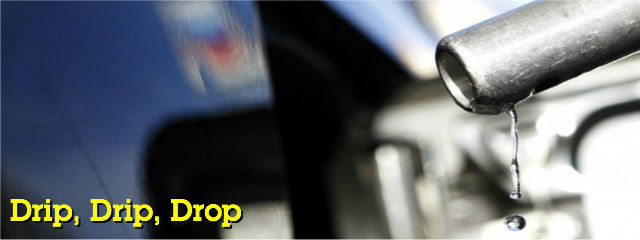Energy In-depth: Pump Prices Declining, Arkansas Drivers Paying $2.46 Per Gallon
by July 24, 2015 6:29 am 95 views

Editor’s note: Each Friday, Talk Business & Politics provides “Energy In-depth,” a round-up of energy and regulatory news in our email newsletter, which you can sign up to receive daily for free here.
PUMP PRICES DECLINING, ARKANSAS DRIVERS PAYING $2.46
Despite regional volatility, the national average price for regular unleaded gasoline has remained relatively stable over the past 30 days. Today’s average price of $2.76 per gallon represents the lowest average for this date since 2010 and is down nearly a nickel per gallon compared to the 2015 peak price reached on June 15 ($2.80), according to AAA. The national average is 82 cents per gallon less than a year ago.
Nationally, pump prices have slowly pulled back from this peak with averages down by one cent per gallon versus one week ago and four cents per gallon versus one month ago.
California ($3.87) remains the nation’s most expensive market for retail gasoline, due to supply difficulties. Regional neighbors Alaska ($3.47), Hawaii ($3.34), Nevada ($3.26) and Washington ($3.19) round out the top five most expensive markets for retail gasoline. Consumers in South Carolina ($2.37) and Alabama ($2.41) are paying the lowest prices at the pump – both discounted by nearly $1.50 per gallon compared to market leader California.
Pump prices in Arkansas are averaging about $2.47 per gallon with a high of $2.55 in the Northwest Arkansas and a low of $2.42 in the Little Rock-North Little Rock metro area. Motorists in Fort Smith are paying $2.48 for a gallon of regular unleaded, while drivers filling up in Pine Bluff and Texarkana are paying $2.45 and $2.46, respectively.
EIA: BEYOND SHELL-BG DEAL, OIL SECTOR MERGER ACTIVITY ON THE DECLINE
The second quarter of 2015 exhibited the largest amount of oil companies’ merger and acquisition (M&A) activity by value since fourth-quarter 2012. The announced merger between Royal Dutch Shell and BG Group in early April accounted for $84 billion of the $115 billion quarterly total, according to M&A analysis by the U.S. Energy Information Administration.
Without the Shell-BG merger, however, the value of deals in the second quarter of 2015 would have totaled $31 billion, $18 billion higher than first-quarter 2015, which was the lowest since at least 2008. The 137 deals announced in the second quarter was the lowest number of deals since fourth-quarter 2008 and 42% below the 235 median quarterly number of deals over the previous two years, indicating less breadth of activity.
Companies often merge with or acquire other companies or their assets in an effort to achieve longer term growth, economies of scale, access to new technologies, diversity of market exposure, or a combination of factors, the EIA said. The buying or selling company may see a valuable opportunity that aligns with its own goals and expectations in deciding to purchase or sell assets.
COAL BANKRUPTCIES PILING UP AHEAD OF EPA’S CLEAN POWER PLAN FINAL DRAFT
Only weeks away from the Environment Protection Agency’s final draft of the president’s Clean Power Plan, the news in the coal industry is that bankruptcies are starting to stack up.
On July 15, coal mining company Walter Energy Inc. announced that it was filing for bankruptcy under Chapter 11 after struggling with depressed coal prices for several years. That followed a bankruptcy filing in May by Appalachia’s Patriot Coal Corp., which was just 18 months down the road from emerging from an earlier Chapter 11 reorganization in 2013.
According to a recent New York Times article on the industry’s rapid decline, six domestic coal producers have filed for bankruptcy since January.
Another report by research firm SNL Financial showed that the industry’s deterioration has accelerated in the second quarter with Wall Street bracing for only five of the 13 publicly-traded coal companies to report positive earnings per share.
BHP CONTINUES SPENDING CUTS, DOWNSIZING FAYETTEVILLE SHALE PLAY OPERATIONS
BHP Billiton said Tuesday that it plans to make further spending cuts to its U.S. onshore oil and gas development, pushing the Australia industrial giant’s current U.S. shale play budget down nearly 60% from $3.7 billion to $1.5 billion for the upcoming fiscal year. The cutbacks will certainly impact BHP’s Fayetteville Shale Play operations in Arkansas. Read more here.
